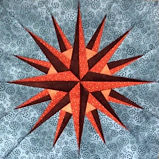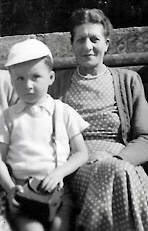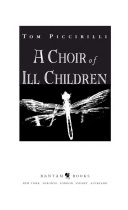Des Lewis will be 77 years old on 18 January 2025
Those who have read these episodic brainstorming reviews of mine must know they are very personal — rough-shod and spontaneous. Synchronicity and anagram mixed. I know they are not professional, never potentially publishable other than in the madness of my head, but I do hope they show grains of dark truth and cosmic panache.

These Des Lewis Gestalt Real-Time Reviews were founded in 2008.

‘What’s the loveliest word in the English language, officer? In the sound it makes in your mouth, in the shape it makes on the page? What do you think? Well now, I’ll tell you: E-L-B-O-W. Elbow.’ — THE SINGING DETECTIVE

“How shall a man find his way unless he lose it?” — Walter de la Mare

To any current genre author I have reviewed before — if you have a new story recently published or soon to be published in a collection or anthology, you may have a review by me of the story that also showcases where it is published. See HERE. (This is because I am no longer well enough to review as many books as I once did.)
Fresh Fictions, free to read HERE.
No AI input in preparation of my texts whatsoever.
THE NEW NONSCENIC
Photos here: https://conezero.wordpress.com/2024/02/24/d-f-lewis-recent-photos-1/


CHAPTER ONE
“She’s the kind of girl who might smuggle hashish in the binding of D.M. Thomas’s ‘The White Hotel’.”
The Narrator, Thomas, lets drop that his three brothers, Jonah, Cole and Sebastian, are Siamese triplets (although he may not agree with that terminology), triplets with joins at such points of the body that their phenomenon all seems paradoxically impossible yet possible within the instinctive world of this text. One of their joins is to to be able or be forced to share the syllables of a single word.
A swamp community, and I already have a strong feel for the place, for Thomas’s circumstances, for the dual TV crew come to documentise the family, for the loving urges of each triplet separately – and for the Godly aura or hinterland that pervades the land, so much so I wonder (without any real direct evidence from the text) whether the Holy Trinity as a Christian Mystery – of three separate leitmotifs and a single gestalt? – is a pervasive force, too. Whatever the case, I am already half-subsumed by the text, struck by its sense of its triumvirate of wonder, place and people, plus a smidgen of singular fear at what I have learnt of those joins.
Just noticed that ‘Ill” (upper case i, lower case double L) in the title of this post appears like the Roman Numeral for 3.
CHAPTER TWO
“To lay her down on silk sheets, dapple her pale cheeks with rose petals, and read ‘Les Fleurs Du Mal’ to her in French. I’ve done it to others.”
I didn’t predict what I was to land myself into when first starting this book yesterday, despite my claims otherwise. It seems to be a very powerful spike-ball gestalt of the suppurating separates or curative curds of humanity’s physical and spiritual condition, involving the cultural and the trashily ephemeral, the porous ability of bodies to join and interchange in empathy or resistance, lovesex and swamp, God and Evil, faith and fellatio, writing as writing or as the cruellest form of tattoos. A strikingly original portrayal of a community and a family within that community interpersonally ricocheting with others, either taut on high-wire or kicking dogs at ground level. Natural and drug-induced inspiration. All in a language Thomas uses that actually deploys IN ITSELF the spike-ball gestalt I mentioned above.
“Jonah recites the names of symphonies, poems and sit-coms, from the core of his third of that brain.”
CHAPTER THREE
“I haven’t brought the Holy Spirit down on him this time. It’s the beauty of the morning, the taste of too much sweetness.”
This is the the best book simply about spasms – as well as containing its own intrinsic spasms – that I have ever read.
The flat rock girl, Drabs’ sugar rush, a primordial and ramshackle Twin Peaks community with Mill and a deep-rooted Hex of Sex. With a cornucopia of ‘objective correlatives’, just as one example, some Meloy dog-kickers. Magic-Real high-wirers, and the prospect of a carnival’s arrival. I shudder as I think of the root of the word ‘carnival’, and feel more and more this book’s sense of both Evil and a Holy Spirit, two sides of my earlier premonition of the III Trinity… Three, not Ill.
Thomas calls these factors a “convergence corridor”…
Thomas, both Doubter and Seeder?
I shall give the tightrope of this text a bit of slack until at least tomorrow.
CHAPTER FOUR
“Sebastian is delirious with fury, his complaints coming from three throats, hitting three different notes, harmonizing well with a little doo-wop shuffle going on.”
“The mouths are going at once, all of them talking at the same time with a dissonance of words, the tributary voice, the subtext and cacophony of tone and meaning.”
Thomas questions his own powers, his own mission, amid a tempest, next to a Wallenda Monastery conceit in his soul, as if this hybrid text itself is the sister he sloughs off.
A secret agent for investigating, not a missing child or such Twin Peaks like mystery, but the opposite-of-missing flat stone girl near the monastic.
There are some amazing passages in these pages that evoke the human condition that all of us recognise by being human, whether it be in swamp or city, here the hexed, polarity-sexed swamp, and its kitchen corner bruises.
I am human but I try to slough off my humanity while I test-run this text, try to catch its dream – or nightmare.
CHAPTER FIVE up to “But my belt was gone.”
“Instead I’d become turned around and continued heading deeper into the broad channels of slough,…”
Taken separately if perhaps not in context, this section is possibly the most moving fable in all literature, telling of Thomas as narrator following his mother’s voice towards the seemingly troubled man, boy and bull stuck in the swamp. The fable’s moral is the most inscrutable and beautiful I have ever encountered. Including, beforehand, this passage that, in the circumstances, means more than can be told, whoever told it to whom in or out of context:-
“‘I bet this here story receives some national coverage on the TV, and folks from all around our great nation will hail your name.’
‘You really think so?’
‘For certain. And tell me now, just what is your name?’
‘Thomas.'”
Not that I know the circumstances nor the full context.
CHAPTER FIVE from “Private eye work” to end
“He speaks my name with a singular flourish. It’s the name of the Doubter and he tries to say it the way he thinks Christ would have. All he thinks I need are a few Sundays listening to his preaching in order to get my mind right.”
We seem ever on the cusp of competing forces, the almost city crime noir element and a Twin Peaks ethos morphed into this new setting. And the more savage elements of survival from the soul’s dark hinterland against and towards a blurring with the cusp of Christianity – as symbolised by the character Drabs. And the instinctive blood links between close relatives in battle with their dreams. Forbidden sex and sex that joins all the emotions into one. The cusp of or within doubt. All couched in Thomas’ brittle explosions of style in interface with his own flowing poetics, as he expresses himself to us about all these things from competing force to competing force.
“LOVE IS ONLY LUST DRESSED UP FOR CHURCH.”
An Aside – One of my favourite pieces of music is Kindertotenlieder by Gustav Mahler (title usually translated as ‘Songs on the Death of Children’) and I have been listening to that quite often during the reading so far of this book. (Aliya Whiteley wrote a story entitled ‘Songs For Dead Children’ based on this Mahler music and it was published in ‘The First Book of Classical Horror Stories.’)
Another aside –
choir (n.) 1300, queor “part of the church where the choir sings,” from Old French cuer, quer “choir of a church (architectural); chorus of singers” (13c., Modern French choeur), from Latin chorus. Meaning “band of singers” is c. 1400, quyre. Re-spelled mid-17c. on Latin model.
Here the choir of three throats? Or something else?
The III Trinity. A polarity of A and B, and insidious C (the singularity of Venn cusps of A and B in circularity (A to B, and B to A))? C stands for the blending Choir. Thinking aloud.
CHAPTER SIX
“They walk the wire across the chasms of their own souls, looking down into the great depths as, step by step, they cross to the distant side.”
Amid self-harm and sacrifice, doubt and ‘debt’, we, the choir or triangulation of this book’s readers, follow Thomas as narrator amid the various, sometimes constructively confusing, folk with whom he has a relationship close or oblique. He is a sort of catalyst or choirmaster… Which brings me back to Mahler, perhaps, viz:-
“She reaches into nonexistent cribs, coos and picks up newborns that aren’t there—phantoms, perhaps memories.”
“The three throats wail in Sebastian’s voice, raving in his wrath, underscored with stanzas dedicated to longing and rapture.”
It has also now struck me that this real-time review of ‘A Choir of Ill Children’, that I started before these two real-time reviews HERE and HERE, is now simultaneous or overlapping with their cusps or Venns, and all three books, amazingly, I find feature a documentary or reality TV, as well as other co-resonances.
CHAPTER SEVEN
“Symbolism is strong even when you’re walking in your sleep. I keep looking around expecting my parents to show up, my mother scampering on the ceiling, my father halfway through the wall.”
And I expect all manner of things to come through this wall of text, Kingdom Come. That fable’s moral I hooked from the swamp earlier which I called out to you as something special has now been dashed by even those who hated life enough to die now coming back to life to kick our dogs. A swirl of characters around Thomas, and he dabs each one in a certain direction, only for them to dab back at him as if he has no control over what he tells us of what they do. He is the centre of the madness and the madness is at the centre of him. I think I took a bite at something too big to chew when I chose this book to review. It is as if this book, so far, is the ultimate gestalt of all my Dreamcatchers in one fell swoop, and many of the books I have reviewed are now coming home from this very book to roost as a labyrinth in my brain, like my erstwhile dreamcatching of the incest in James Joyce’s Finnegans Wake, the mystic swirling of John Cowper Powys’ Inmates, the Function Room of Matt Leyshon, The Infusorium of Jon Padgett, Laurence Sterne’s Tristram Shandy, Islington Crocodiles of Paul Meloy, Unknown Kadath of Lovecraft, the Yellow Punk of Joseph S. Pulver Sr., the reality documentary of Mark Z. Danielewski, and a book called Dreamcatcher itself by Stephen King comes to mind – and more I’ve forgotten. All swirling around and within.
CHAPTER EIGHT
“There’s a madness circling in her eyes but it’s a kind of insanity you can embrace. A madness of history and survival,…”
There is something intensely original in conception about the revenants explicitly ‘conjured’ by this text itself, even when disregarding what its words mean. Imagine a dead person returned as a literal blend of ghost and zombie, the ghost, of course, laced with evidence of the self that once inhabited the original body that is now the zombie.
Thomas is given head by one of the serial grannies or conjure women or another character I’ve now forgotten…
And there are other continuing swirling spin-outs of sub-plots…including Drabs and the secret agent.
Thomas’ once dead father returns, and his clothes are now paradoxically too big for Thomas to wear because the father, I infer, is now bigger than he once was when alive. Compare such a paternal-transvestite element to this wonderful article by someone I know, an article that I happened to read yesterday from The Guardian HERE.
“…the man with three heads, who is waiting for her somewhere farther down the path.”
CHAPTER NINE
“She carried invisible babies across an empty nursery but she’d never gotten the chance to bear her own.”
“She is buried wearing the eye patch, not very far from my grandmother’s grave. The pilgrims wander the grounds, searching out spirits, God, death, redemption, or resurrection.”
“The acidheads act as if they’re walking down a long hallway handing newborns to mothers in the maternity ward. They sit talking with phantoms for a time, discussing the beautiful infants, those bright and open futures.”
“The river’s gonna flood, people will be drowning facedown in the parking lots and gutters. Bog town gonna fall into the swamp. You jest watch. The dead get up, the past comes around again.”
There is no real point in my keep attempting, with this review, to deploy the acid splatter-gun details of the plot. You either get what I have already allowed to escape from this book or you don’t. It gives the concept ‘spoiler’ a new dimension…
Meanwhile, I am sorry for deploying instead the four exegesic exorcisms of text above, but they do serve to real-time review the book from WITHIN the book with the reader like me just bobbing along on top. It is as if there is an inverted evangelism to this book whereby the rain makes us all swampland, with our simultaneously floating on top as well as becoming the swamp itself. Following the eye patch reference, I think of twin peaks. Without twin peaks you can’t have the replica vale between. This book is the spasming of vale and peaks. Veil and piques. Veil lifted with peeks beneath it becoming eventually a spiritual gawping.
CHAPTER TEN
“It sometimes keeps him awake at night, knowing that Kingdom Come is forever entwined with the ancient history of seeping ground and stone he cannot move.”
That’s Thomas’s father, whose huge shoes turn up somewhere in reality or nightmare. The blend of ghost-zombie I mentioned before is now hooked to dream, as we learn to get enmeshed with more than just ordinary horror genre nightmare but things coming out at you from the page, all mingled with a poignancy that these things are also happening to the people dead and live whom you love.
The High Noon duel in the swamp of this chapter, notwithstanding.
If these things don’t happen to you when reading this book, then you deserve to fail.
Everyone and everything should be allowed to fail in their own way, including this novel.
CHAPTERS ELEVEN & TWELVE
“The ham is still in the house.”
An incantatory dremcaptcha refrain with real words (not mixed-up letters and numbers) like elsewhere: “The Owls are not what they seem.”
This book is full of incantations, spells and refrains that I could have quoted, and brittle scintillations of expression. Even if you get swamped by the plot, you will never forget the onward drive of the language.
One chapter led me into the other without break, with all the book’s codes and captchas captured by my eraserhead of a bayou brain, before they got rubbed out. I am particularly captivated by the skiff journey Thomas takes deeper into the swamp to find the three choirs festival of his brothers, no, the carnival, and you will never forget this downtrodden carnival, where he also finds again his dead and alive father. It seems inevitable that much earlier today I visited in the crematorium my own beloved Dad who died of MND in 2007 – and tied to one of the other memorials nearby (for a deceased who was born in 1975) was a large 40th birthday balloon bobbing about in what I shall now describe as a carnival breeze. Anyone who reads my Facebook page for today and looks at the photos there will see that I am not making this up!
There is something deeply meaningful but intangible about all this. Something that only a book like this can deploy, as if by magic.
Ill III illi
CHAPTERS THIRTEEN & FOURTEEN
“The room is packed with ghosts. Her languid cries bring them out of the walls, struggling and waving.”
“He’s tearing himself up for being what I am.”
“The tempests and the dead come and go as they’re meant to do. They bring their pain and we bring ours and together we fight our way to the dawn.”
There is forbidden sex and atrocity in this book, be warned. And dog-kickers, too.
There are also loose ends in this coda of two chapters, that begin to tighten… But there is also a religious tightrope the reader is made to tread. If you get to the end you are taught explicitly how ‘the dead can dream’.
Mahler also wrote a symphony called the Resurrection.
end
THE ABOVE WORK HAS THE HONOUR TO BE ON THIS LIST HERE AS COMPILED BY DFL